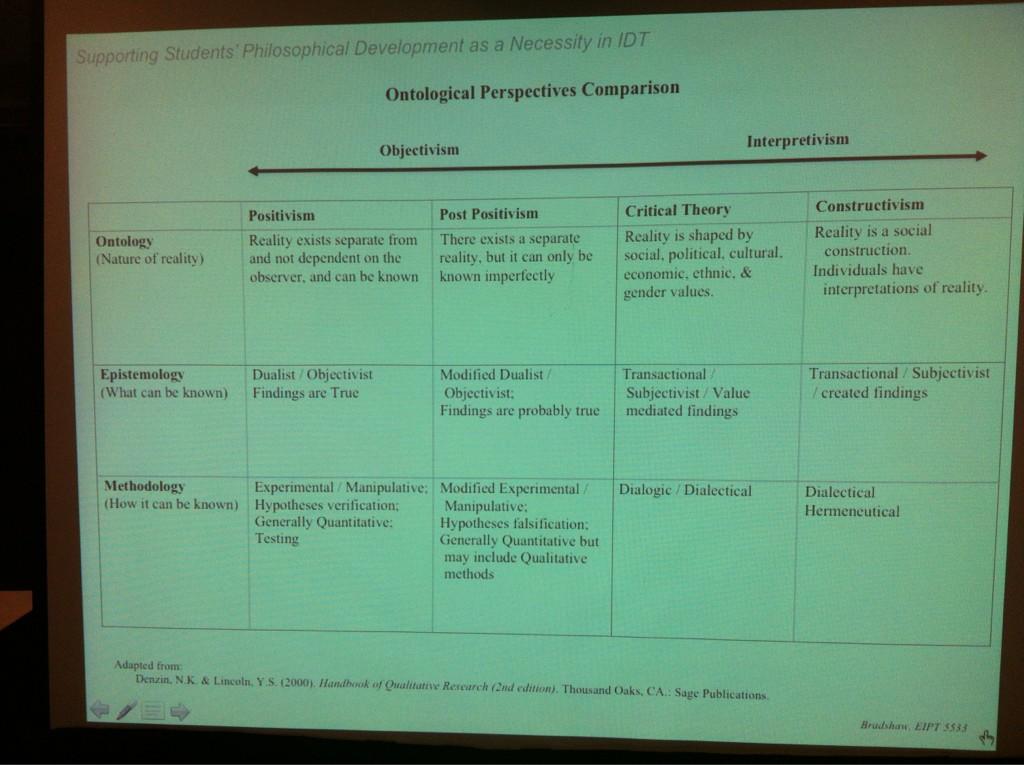#AECT 2012
It is the end of my first day at the AECT 2012 International Convention. I've enjoyed the presentations and interactions thus far, despite the fact that I helped give one of the presentations... Here are some of my experiences at the conference today.
10:00 - 11:30 IDT Professors Forum
This morning I attended the IDT Professors forum. We talked about how our foundational beliefs about reality, what knowledge is, and how people learn have a profound influence on the way we teach and design instruction. The presenters shared the slide below:
Ontological Perspectives Comparison Table
It was a good discussion - got me thinking about my own underlying beliefs and how they influence my approach to teaching and design.
1:00 - 2:00 Co-presented with Greg Francom - What is Task-Centered Learning?
Dr. Greg Francom and I presented on a paper that we wrote on what task-centered learning (TCL) is. The purpose of the paper was to identify the common elements of several similar models of instruction. We also differentiated TCL from Problem-based Learning (PBL) and showed some of the fundamental differences in the underlying assumptions and applications of each theory.
Fundamental Components of Task-Centered Learning:
- Learning Tasks
- Activation of Prior Knowledge
- Demonstration/Modeling
- Application
- Integration/Exploration
One will note that these principles align quite well with
Dr. Merrill's First Principles of Instruction.
Greg during our TCL Presentation
One interesting discussion with the participants revolved around the question of whether or not we should try to synthesize theories together into a coherent framework. There were 2 camps - one thought we should, the other that we shouldn't. In my mind, I think that we should try to make coherence out of the theories and principles that have been discovered and researched by putting them together into a coherent, usable structure. However, this is not to say that we should try to combine everything that has ever been studied into one great ultimate theory of instruction; rather, we should clarify what works when and provide a structure that allows a person to use that knowledge in meaningful, contextualized ways.
Evening Social
After an interesting keynote address, I spent a couple of hours at the Evening Social event. Talked with lots of old friends, colleagues, and professors. It is always fun to get together with my particular brand of nerd (no offense, my fellow-edtech nerds) and talk instructional design and technology. Talked briefly with Dr. Merrill, who has been a great mentor and leader in the field.
Drs. Preston Parker, Joel Gardner, David Merrill, Greg Francom, and Max Cropper































